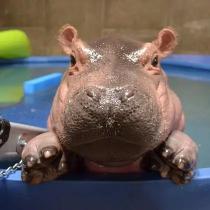
Cincinnati Zoo
@cincinnatizoo
البلد / المنطقة:أمريكا
فئة:
-
28667الترتيب العالمي
-
7350ترتيب الدولة / المنطقة
-
1.77Mمتابعون
-
698أشرطة فيديو
-
55.73Mالإعجابات
-
فيديو جديد8
-
متابعين جدد7.61K
-
طرق عرض جديدة2.12M
-
إعجابات جديدة115.57K
-
مراجعات جديدة1.52K
-
مشاركة جديدة30.65K
Cincinnati Zoo التحليل الإحصائي (30 يوما)
-
متوسط المشاهدات 2.12M متابعون / الآراء 0.36% -
متوسط الإعجابات 7.72K الإعجابات / الآراء 12.52% -
متوسط التعليقات 168 المراجعات / الآراء 0.07% -
متوسط المشاركة 1.88K يشارك / الآراء 1.45%
Cincinnati Zoo فيديوهات ساخنة
يرجى الانضمام إلى مجموعة TikTok Inspiration على Facebook
سنشارك أحدث مقاطع الفيديو الإبداعية ويمكنك مناقشة أي أسئلة لديك مع الجميع!
TiktokSpy from IXSPY
أدوات رقمية للمؤثرين والوكالات والمعلنين والعلامات التجارية.
شركة خارجية مستقلة ، وليس موقع TikTok الرسمي.
Copyright@2021 ixspy.com. All Rights Reserved

 Anti-detect Browser
Anti-detect Browser

